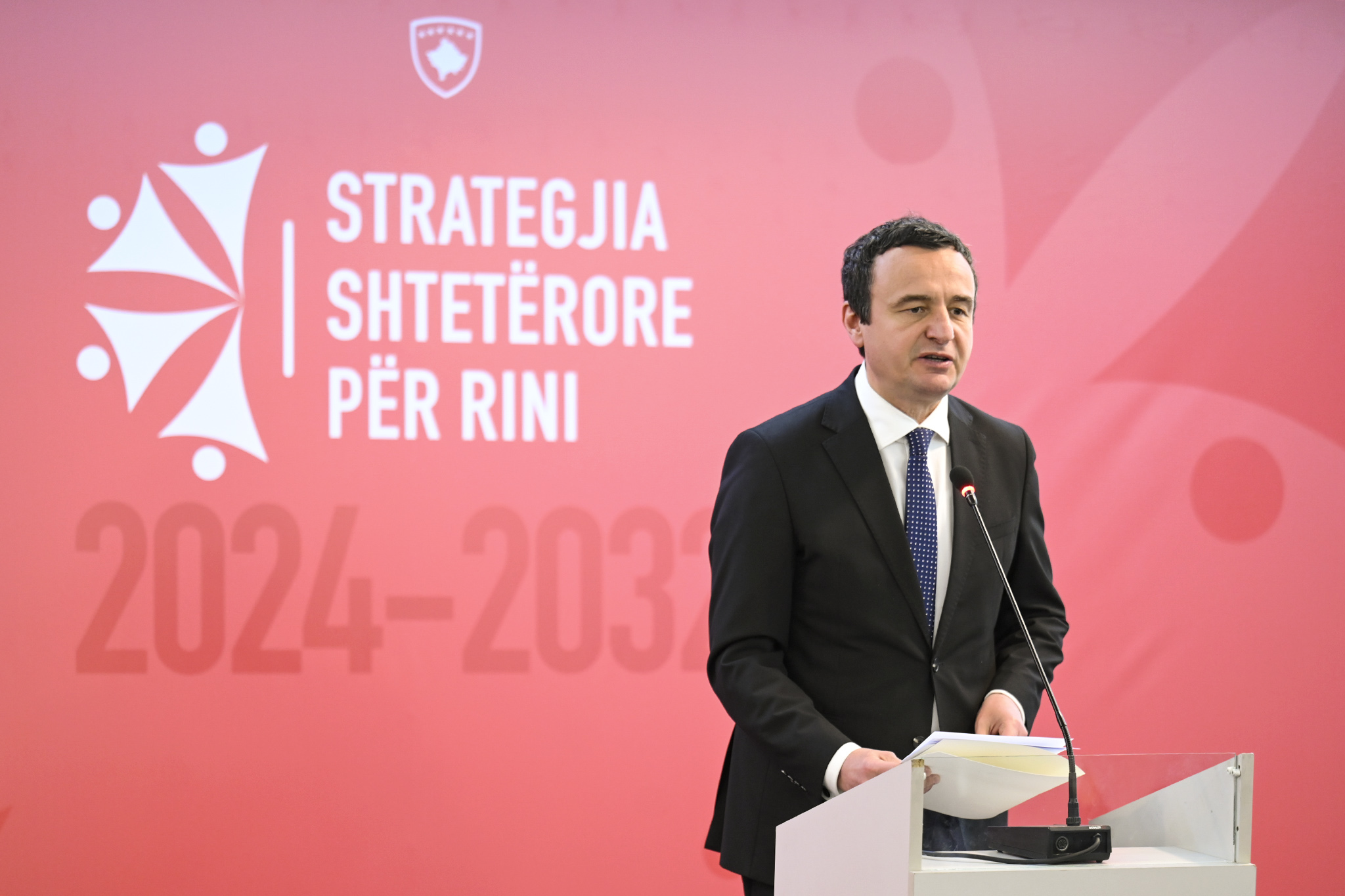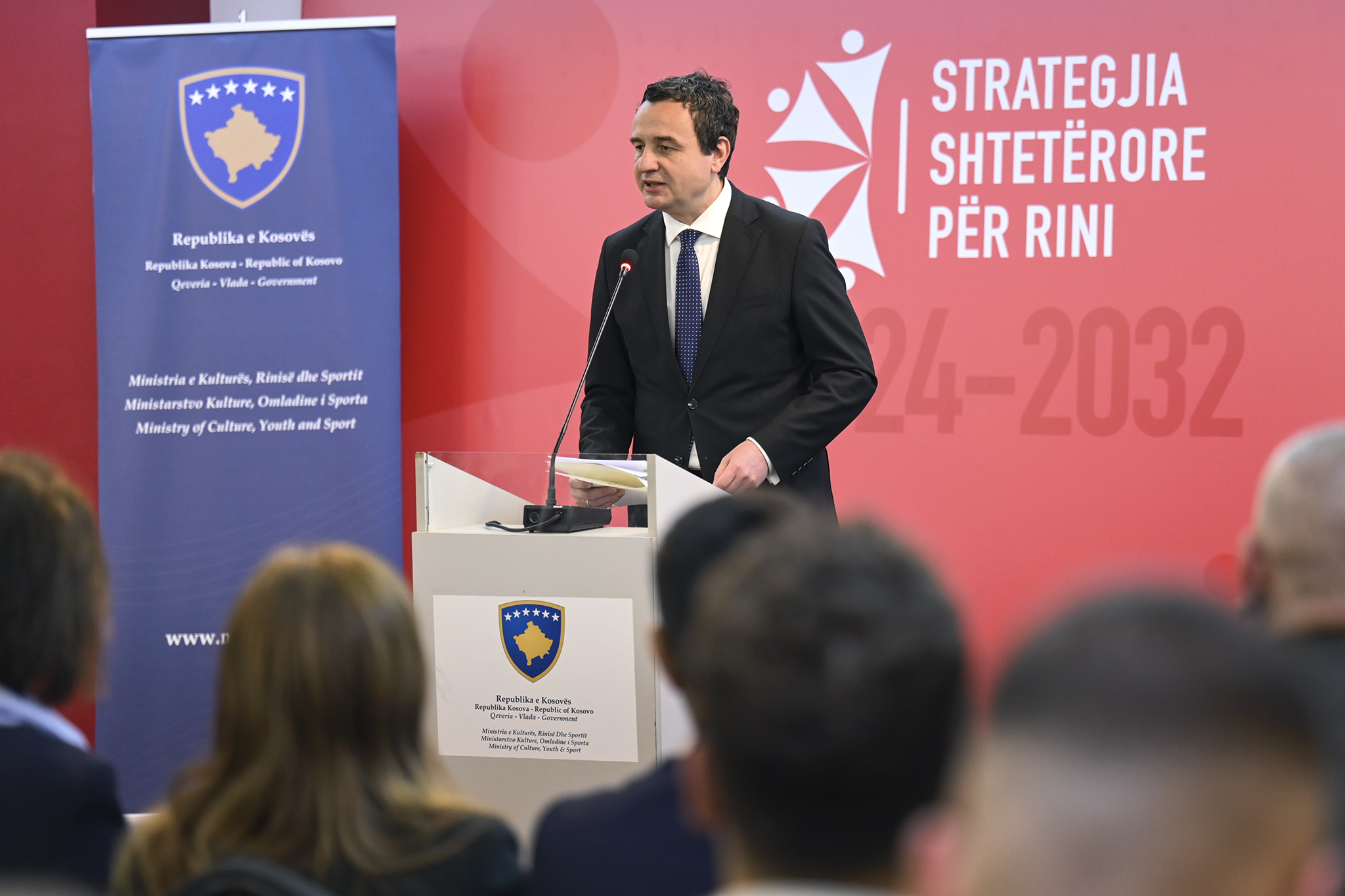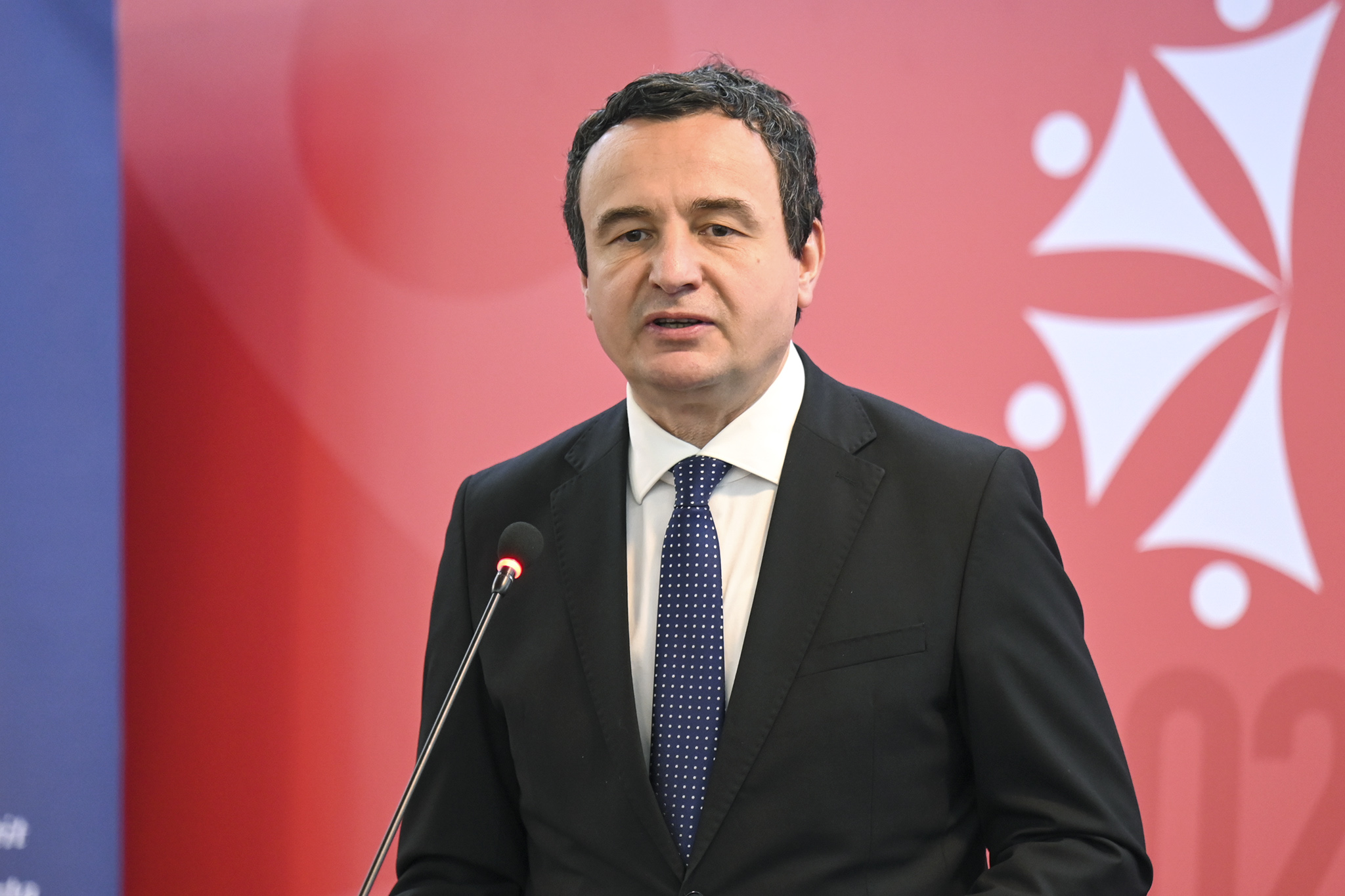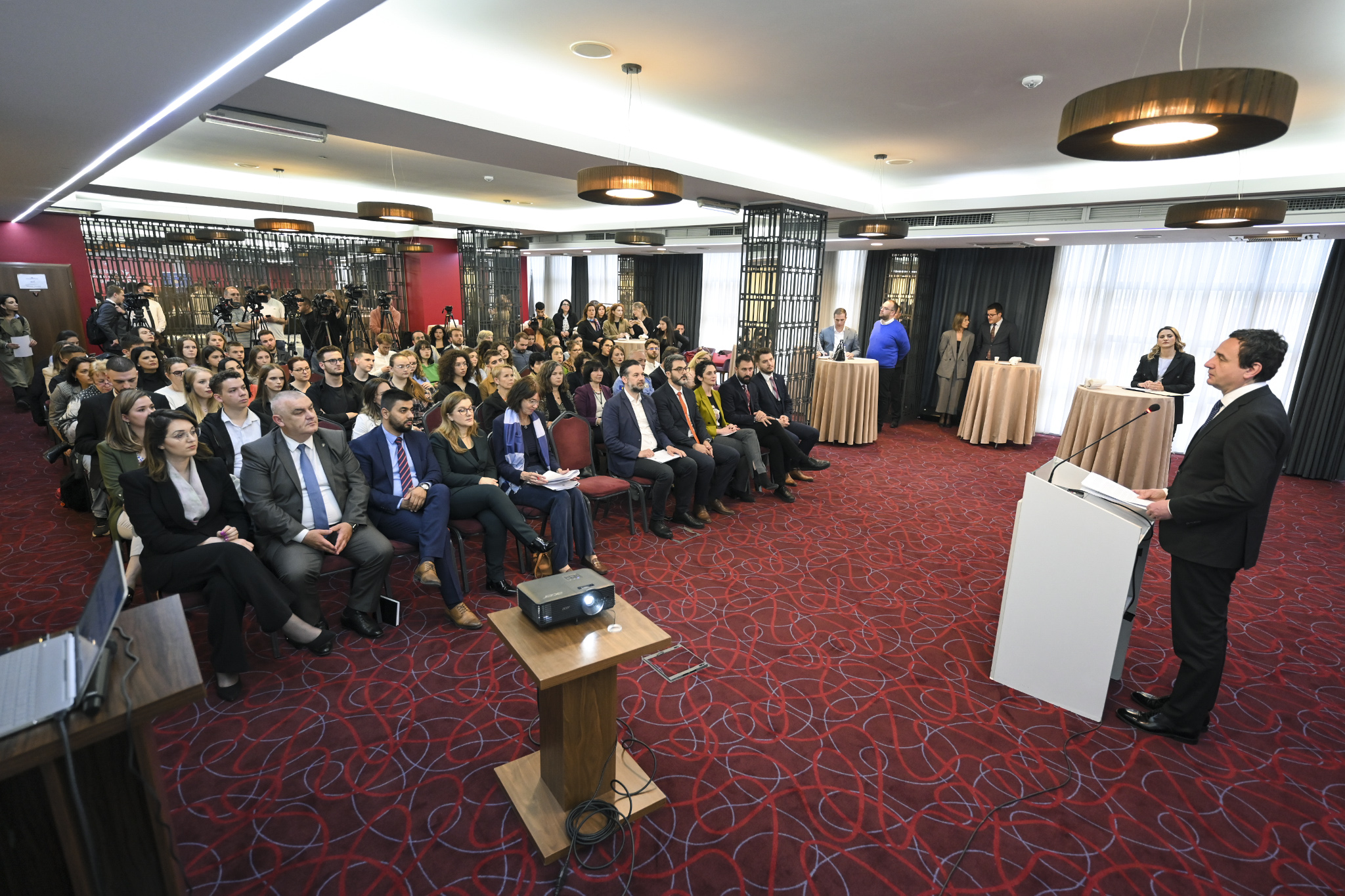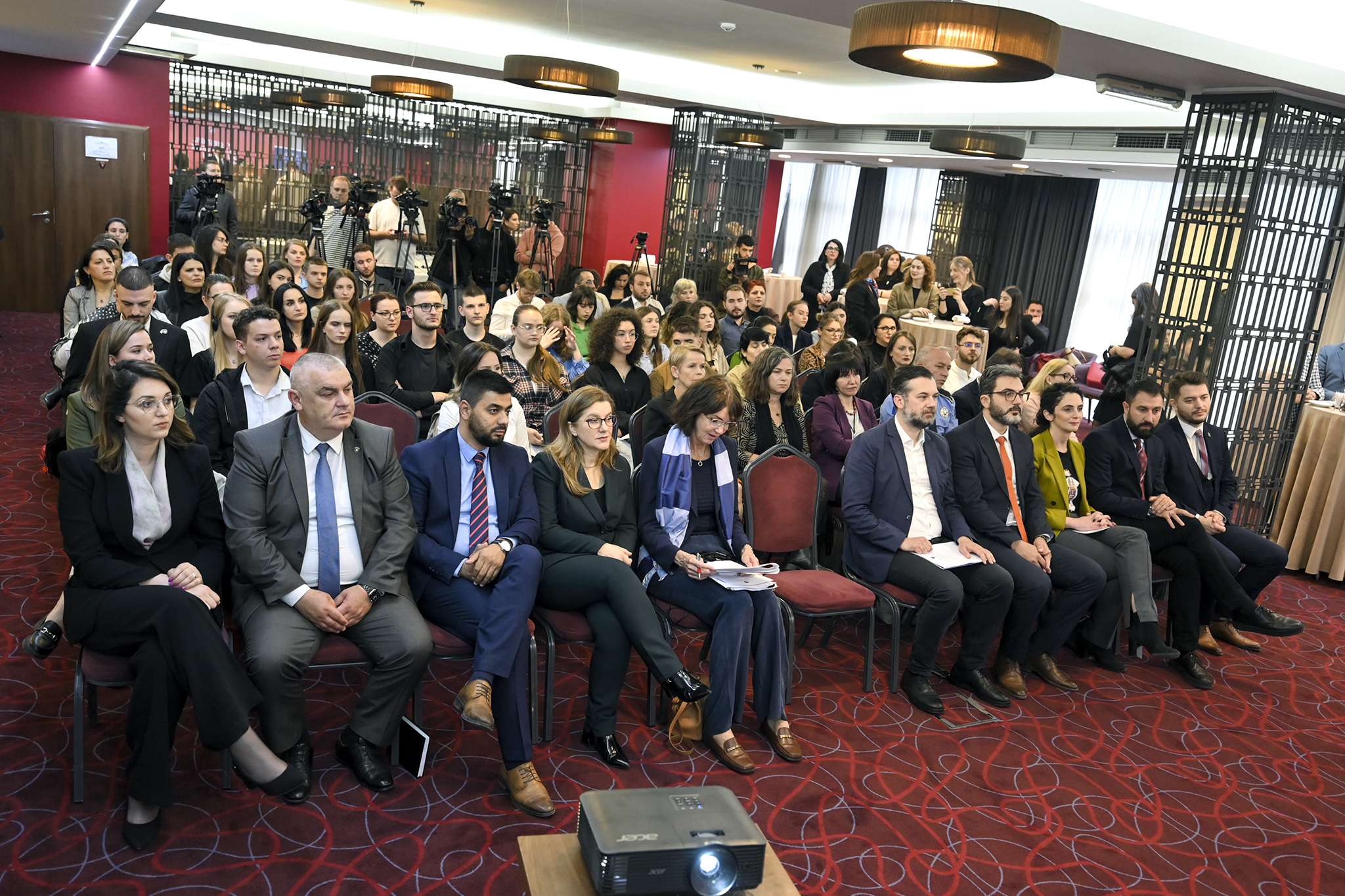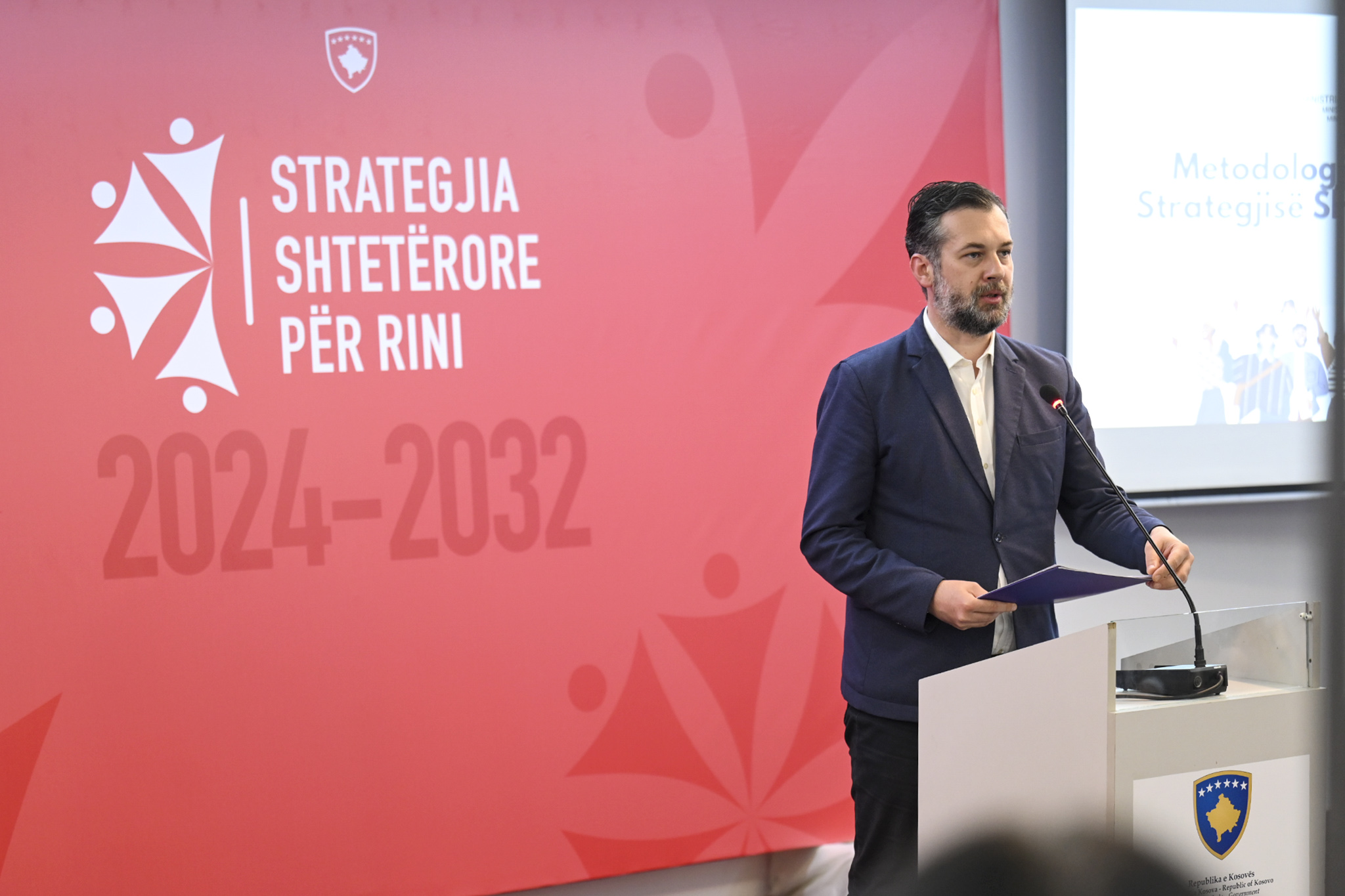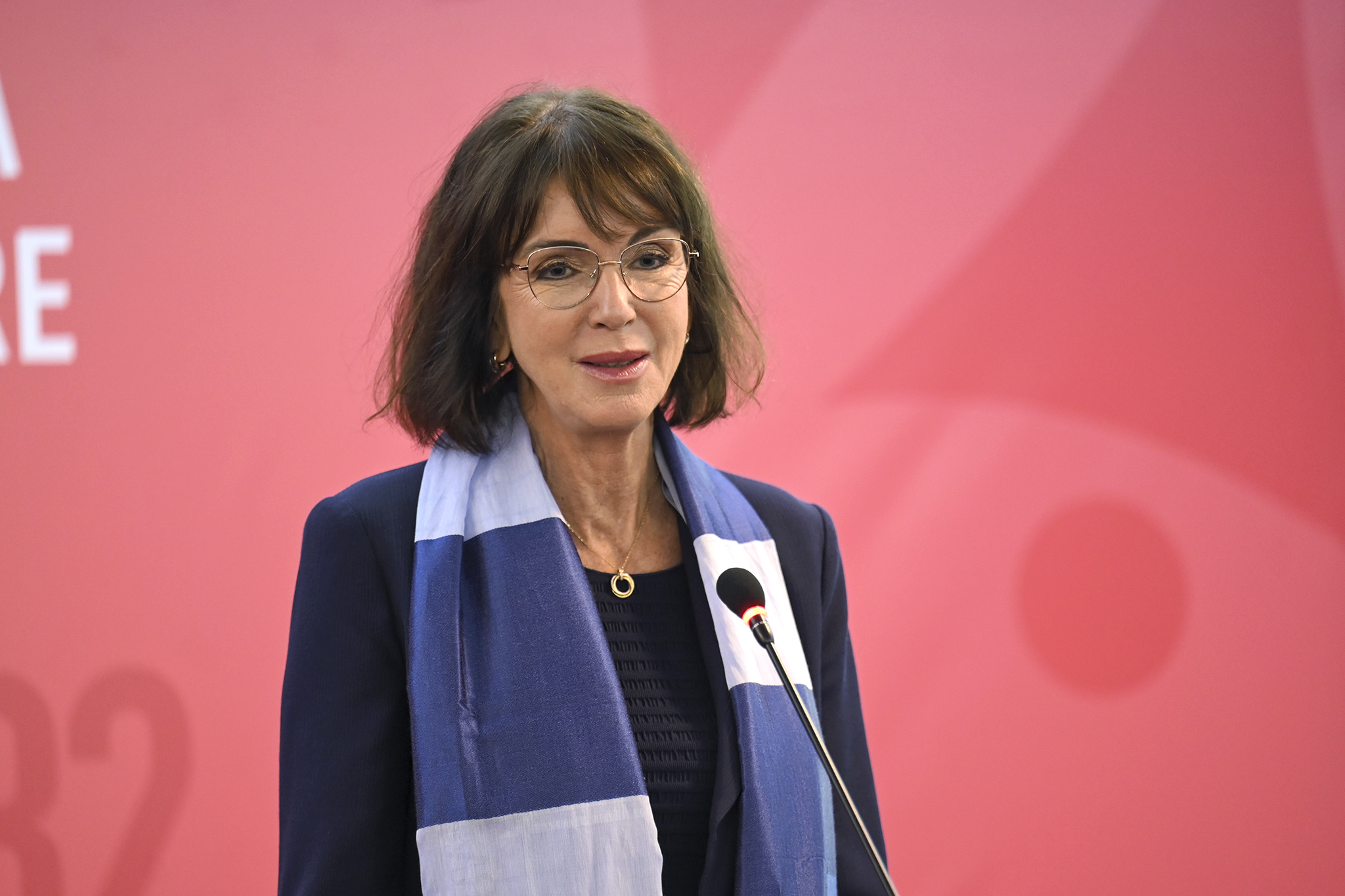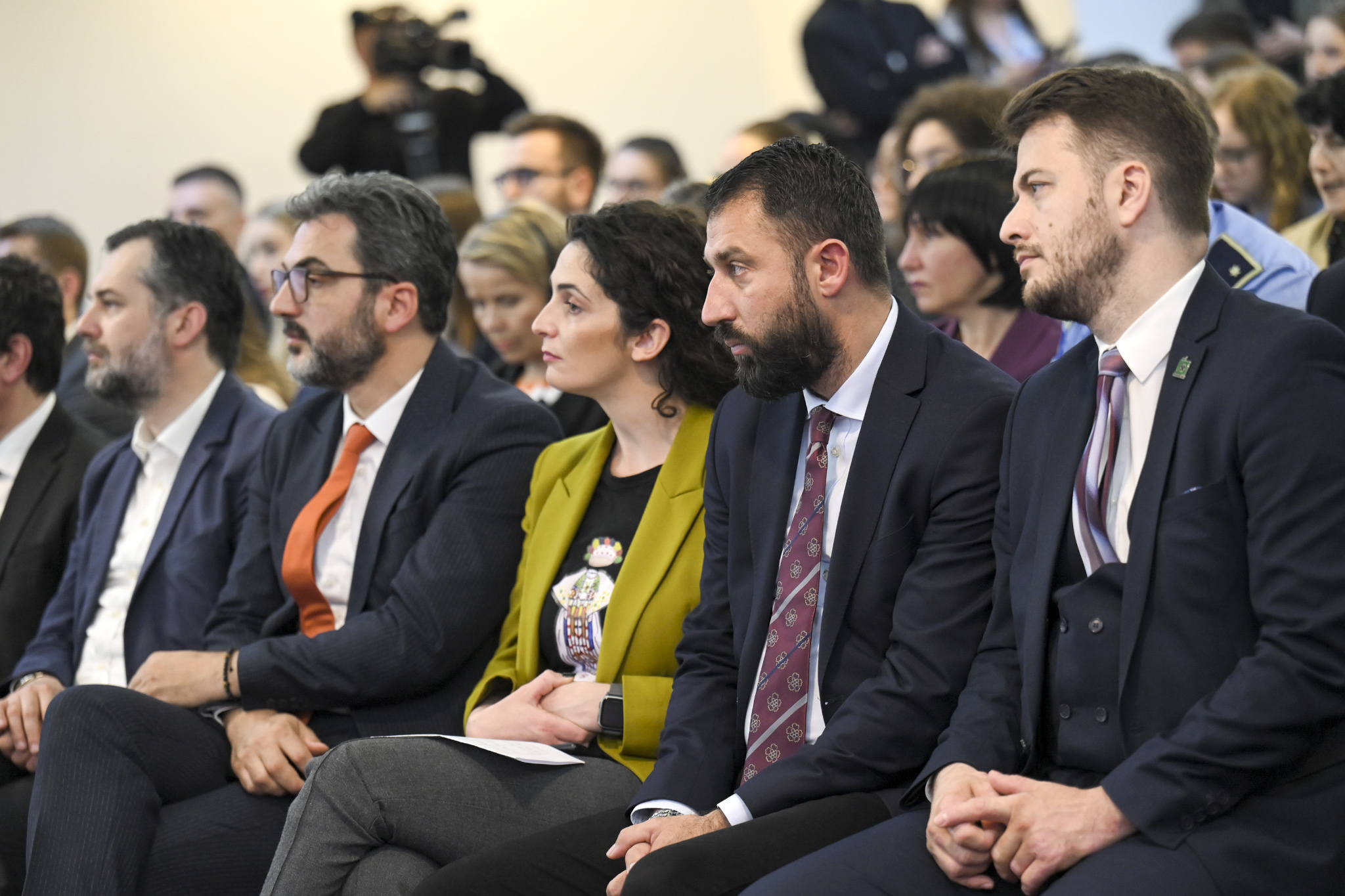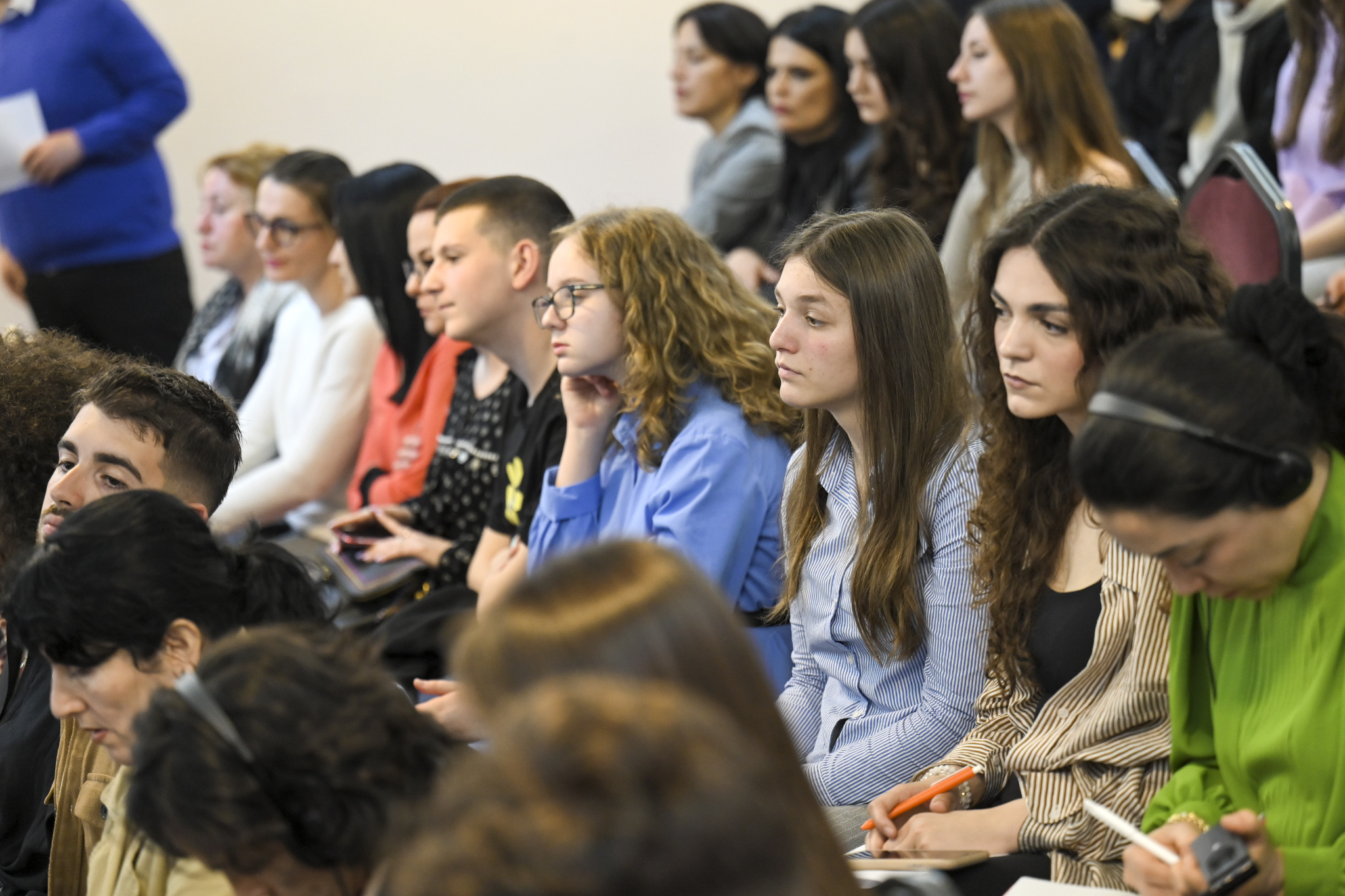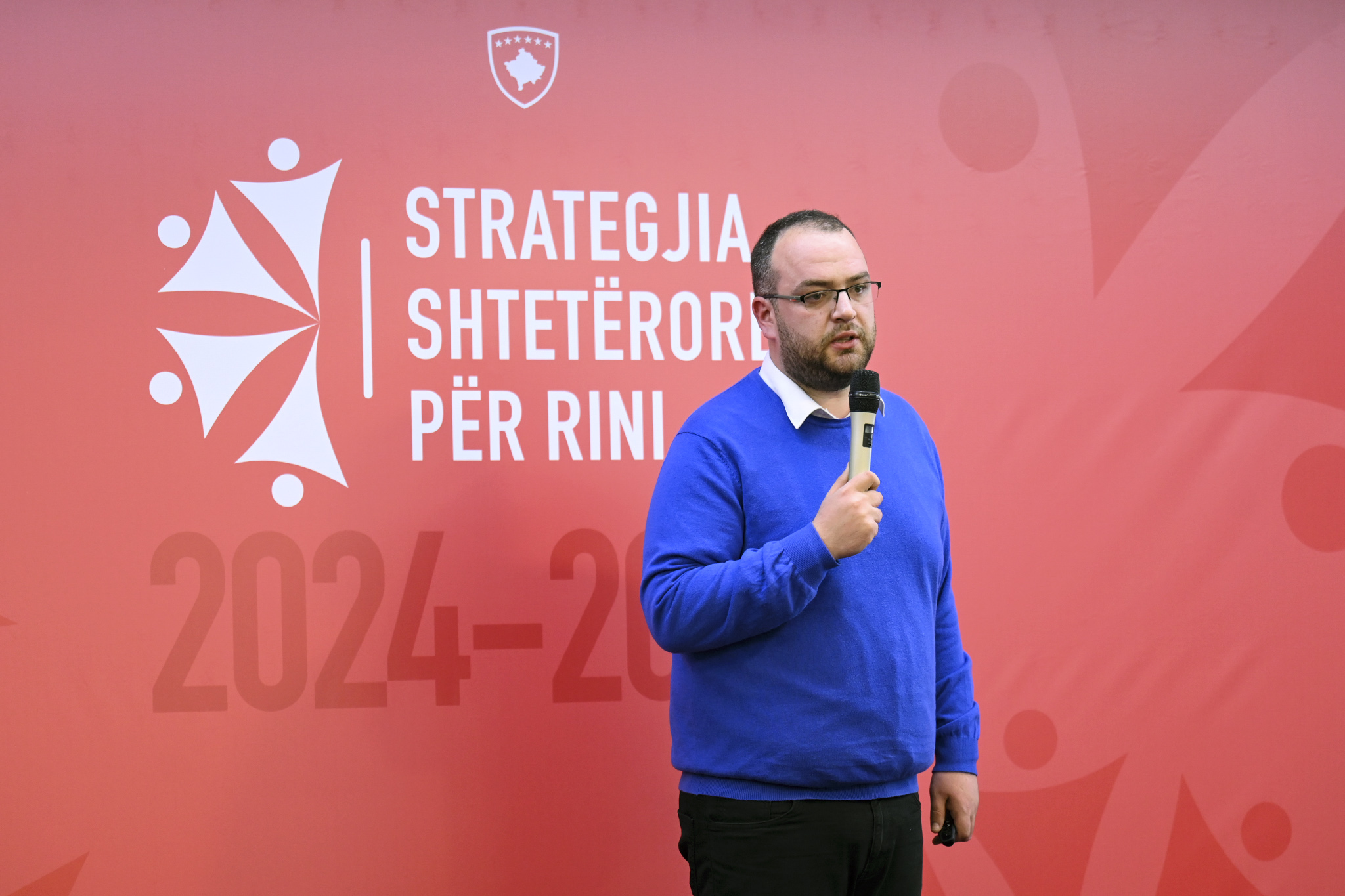Prishtina, 16 May 2023
The Prime Minister of the Republic of Kosovo, Albin Kurti, participated in the presentation of the drafting process of the State Strategy for Youth 2024-2032 and the Action Plan 2024-2026, organized by the Ministry of Culture, Youth and Sports.
In his opening speech, Prime Minister Kurti said that the orientation of this government aims to be summed up in two words, with which we pledged more than two years ago: jobs and justice. Jobs mean more economic activity and innovation, higher quality education, more foreign investments. Justice means equality, well-being, security and trust in institutions.
Speaking about the development of the Strategy, he said that it is time to make a serious investment in our country and the State Strategy for Youth is the tool; a tool that will bring all institutions to the table to reflect on the specific challenges that young people face in their sector and to develop and implement public policies to serve them.
“The State Strategy for Youth will be the main long-term guiding document for the government regarding youth, where each ministry and institution is expected to define its own role. In addition to being a strategy that guides us towards development, it will also be a tool for reforming cross-sectoral policy-making towards youth”, said Prime Minister Kurti.
Through the various measures of the Government, and most recently the Superjob program where over 2,000 employment relationships have been established in a short period of time, youth employment is increasing. We made the university free for nearly 43,000 students and have awarded over 3,000 scholarships for studies in the country and abroad. This year, 2 million euros will be allocated for 2,000 scholarships only in the STEM fields, i.e. Science, Technology, Engineering and Mathematics. In health, the budget is 100 million Euro more this year: 296 million euros today compared to 198 million euros in 2022.
Prime Minister Kurti also said that close to 15 million euros have been allocated for direct support in culture, youth and sports, while emphasizing that the support for the books in the past was a maximum of 150 thousand euros per year, while this year 1 million Euro have been allocated.
On this occasion, the Prime minister invited young men and women to embrace optimism, saying that Kosovo has never performed better in key indicators.
“Almost anyone who talks to this generation of young people knows that most of them want to build their lives in their own country, close to their family and friends. Therefore, the government belongs to them and we are working together with them to transform our country.” We are making future planning possible through our young men and women. With jobs and justice, Kosovo is the future for them, just as they are our future and our present”, he said.
Prime Minister Kurti’s full speech:
Dear Mr. Hajrulla Çeku, Ministry of Culture, Youth and Sports,
Honorable Ms. Arnhild Spence, Coordinator of UNKT,
Honorable Chief of UNDP, Mrs. Maria Suokko,
Dear Chief of UNICEF, Ms. Nona Zicherman,
Honorable Ms. Engji Susuri, Consultants for social development,
Dear Mr. Kushtrim Canolli, Office for Strategic Planning,
Dear Mr. Imran Rasimi, Department of Youth,
Honorable chairs of the parliamentary committees for foreign affairs and education, Arbereshe Kryeziu and Ardian Gola,
Honorable Deputy Ministers of Culture, Youth and Sports, Daulina Osmani, of Economy, Getoar Mjeku and of Health, Dafina Gexha,
Dear young men and women,
Honorable attendees,
The orientation of this government aims to be summed up in two words, with which we pledged more than two years ago: jobs and justice. Jobs mean more economic activity and innovation, higher quality education, more foreign investments. Justice means equality, well-being, security and trust in institutions.
Through good planning, we want the implementation to be timely and effective. Good planning is particularly necessary for youth development as a complex and cross-sectoral issue and category. I meet young people every day and everyone has dreams, and perhaps just as many challenges. Being young is a challenge in itself, that’s why youth policies are developed, let’s not mention policies for middle-aged people, even though this period also has its own crises.
Being young is to find oneself in transition, from family care to independence. In this phase, the youth in a way transitions to the care of the state, to be provided with employment opportunities, access to financial services, secure housing and possibilities to save and plan for the future. In this phase, the youngsters are making the most important decisions ever: what jobs to do, where will to live and who to have as a life partner?
Second, being young often means finding yourself at several disadvantages. Disproportionately they are more often without work, more exposed to substances, pressure in the workplace, and mental problems. Young people also face climate change on the horizon, as a serious problem inherited from the current generation, as well as previous ones.
But, above all, to be young means to have time, creativity and talent, enthusiasm and endless ideas. Our role as a state is to protect them from disadvantages and to help young people to take advantage of their strengths. To close the gap between talent and opportunities, between enthusiasm and support, between ideas and reality.
Today, the state’s approach towards youth is changing. The policies we are designing have Kosovo’s reality as a context and the best international practices, particularly European, at their core.
A study commissioned by the White House during President Barack Obama’s tenure describes how the disadvantages facing young people, such as unemployment, crime or substance abuse, have significant economic costs for the state. However, the ‘return on investment’ in a young or disadvantaged young woman generates benefits more than three times the cost. This exceeds the rates of return on many private sector investments.
To be young is not only valuable for the youth themselves, but it’s also valuable for the state and the economy.
It is time for deep investment in our country and the State Strategy for Youth is the tool; a tool that will bring all institutions to the table to reflect on the specific challenges of young people in their sector and to develop and implement public policies to serve them. Elections indeed produce a four-year mandate, but our vision and planning for this investment must be longer-term, much more longer-term. We need to have a wide and most comprehensive discussion with young people, public institutions and our partners.
The State Strategy for Youth will be the main long-term guiding document for the government regarding youth, where each ministry and institution is expected to define its own role. In addition to being a strategy that guides us towards development, it will also be a tool for reforming cross-sectoral policy-making towards youth.
In the past we have had fragmented planning and implementation, though when there was some planning, implementation remained fragmented, unconsolidated and often contradictory. The stated priorities were usually not funded or budgeted. However, this does not happen anymore.
The results of thorough state planning have started to appear everywhere. In two years, 2.1 billion Euro have been added to our economy. Kosovo’s gross domestic product now amounts to 9 billion Euro. In the past, the Government needed 3 years to add 1 billion Euro to the economy. So, for each year of the past two years that we are in government, the economy has grown more than the previous three years combined.
Through various measures of the Government, and most recently the Superjob program where over 2,000 employment relationships have been established in a short period of time, youth employment is increasing.
We made the university free for nearly 43,000 students and have awarded over 3,000 scholarships for studies in the country and abroad. This year, 2 million euros will be allocated for 2,000 scholarships only in the STEM fields, i.e. Science, Technology, Engineering and Mathematics. In health, the budget is 100 million Euro more this year: 296 million euros today compared to 198 million Euro in 2022.
Meanwhile, we have allocated nearly 15 million Euro for direct support in culture, youth and sports. The support for books in the past was a maximum of 150 thousand euros per year, while this year we have allocated 1 million euros. We declared the movie-making a sector of special public interest – we found it with 700 thousand euros budget, today we have a budget of 2 million euros.
We are marking progress towards membership in the Council of Europe, NATO and the European Union. The corruption index “Transparency International” raised Kosovo by 20 places for two years. Today, Kosovo is ranked in the highest position ever. The Media Freedom Index ‘Reporters Without Borders’ raised Kosovo by 22 places. On digital governance, the World Bank in its index raised Kosovo from group C to group B.
Therefore, wherever I meet young men and women, I invite them to embrace this optimism. Kosovo has never performed better in key indicators. We have a lot to do, but we are on the right track.
Almost anyone who talks to this generation of young people knows that most of them want to build their lives in their own country, close to their family and friends. Therefore, the government belongs to them and we are working together with them to transform our country.” We are making future planning possible through our young men and women. With jobs and justice, Kosovo is the future for them, just as they are our future and our present.
Allow me to congratulate the Ministry of Culture, Youth and Sports which in collaboration with the Office of the Prime Minister is leading the process, as well as UNKT (in particular UNDP, UNICEF, UNFPA and IOM) for supporting this process, and all our partners for the assistance and support provided in achieving of our goals.
Thank you.
Last modified: May 19, 2023
